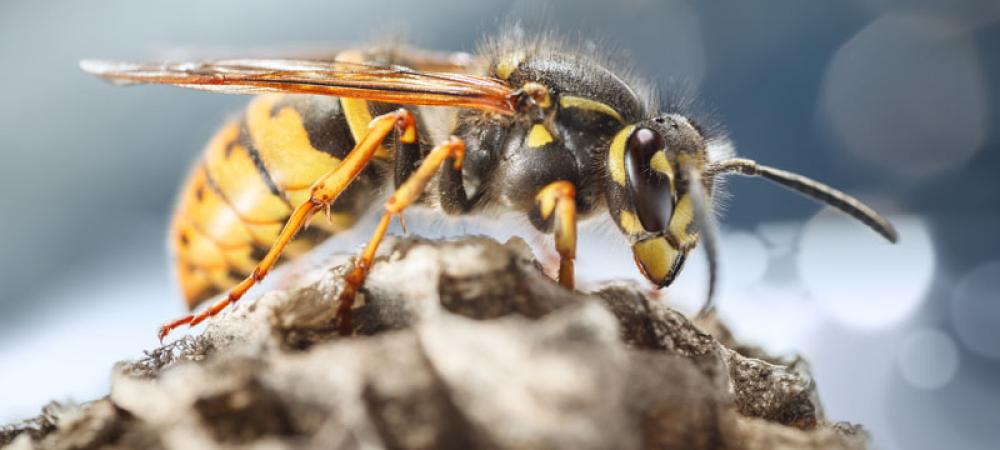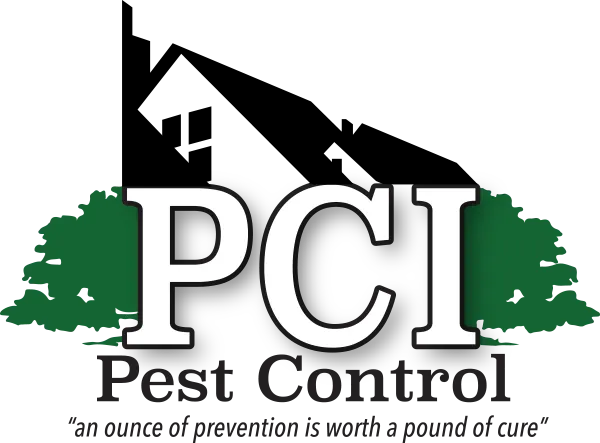What Attracts Wasps to Your McKinney Yard

Do the buzzing and stinging of wasps have you running for cover? If you live in Texas, you may have encountered your fair share of these pesky insects. From paper wasps to yellow jackets and even hornets, plenty of varieties can make their home in the Lone Star State. But what attracts wasps to our yards in the first place? This article will look at some of the most common types of Texas wasps and explore what draws them to our homes.
What Kind of Wasps are in Texas?
Texas is home to various species of wasps, including paper wasps, mud daubers, and yellow jackets.
Yellow Jackets
Yellow jackets, also known as Vespula vulgaris, are a species of wasp native to Texas. They have easily recognizable black and yellow markings and can grow to ⅜" or ⅝" in length. Yellow jackets are social insects that live in colonies, building nests inside structures or on the ground to protect their group. These aggressive wasps will often sting if they feel threatened, making it essential for homeowners to be aware of their presence.
Paper Wasps
Paper wasps, also known as Polistes spp., are slightly larger than yellow jackets, at ¾" to 1" in length, and have brown or black bodies with yellow to red markings. Paper wasps are solitary insects living alone rather than in colonies like other wasp species. They build nests near the shelter of buildings and only construct a comb layer for brood rearing. Although they can be aggressive if threatened, paper wasps rarely sting people.
Hornets
Hornets are 1.25" in length, and have black bodies with light yellow or white stripes. Hornets build hives by chewing wood into a papery pulp and using it to construct walls, usually on high trees or sturdy, woody plants. Although they can be aggressive if threatened, hornets rarely sting people unless provoked.
Mud Daubers
Mud daubers are smaller than hornets, growing only up to 1" in length and having black bodies with bright yellow markings on their thorax and legs. Unlike other wasps, mud daubers do not live in colonies or build nests with other wasps; instead, they use mud to create small nests for themselves and their offspring. Mud daubers are generally docile and do not swarm like other wasps, making them less of a nuisance to humans.
What Attracts Wasps to My Yard?
Wasps are attracted to yards for various reasons, but the most common ones are food sources and comfortable nesting spots.
Shelter
Wasps are attracted to yards or other sheltered places like undisturbed areas to take refuge from potential predators and harsh elements. Such sites include hollowed-out trees, birdhouses, wall cracks, and other locations. It's essential to keep food sources far away from these places as the presence of food will further attract the wasps. Additionally, light-colored surfaces should be avoided as wasps may also be tempted by them. If a nest is found on your property, it is best to contact a professional pest control company that can safely remove the nest without danger.
Food Sources
Wasps in Texas are attracted to food sources that can provide a source of nutrition for them. These food sources include sugary liquids or substances, such as nectar from flowers, fruit juices, and jams, as well as protein-rich items like sap from trees, small insects, and even leftovers from pets' meals. In addition, wasps may also be drawn to sweet-smelling fragrances like those found in perfumes or scented candles. To discourage the presence of wasps in your home or yard, removing any potential food sources and keeping the area clean by washing away spills or sugary residue is crucial. Additionally, ensuring tightly sealed trash cans will help deter wasps from entering your property, as they may be attracted to the smell of decaying organic matter.
Food Leftovers
Wasps in Texas can be attracted to food leftovers found on decks, patios, and other outdoor areas. The smell of grilled meats or sugary treats can quickly draw a wasp's attention. To prevent wasps from swarming around your outdoor space or getting into your home, promptly cleaning up any food scraps or spills is essential. Additionally, it is a good idea to cover cooked foods when possible and store them away from the outside environment. If you have pets that eat outdoors, pick up their bowls and remove any food residue as soon as they finish their meal.
Sugar
Wasps in Texas are particularly attracted to sources of sugar, such as fallen fruit and hummingbird feed. Wasps will gather around these sweet treats to get the energy they need to survive through the winter. To prevent wasps from visiting your outdoor area, cleaning up any fallen fruit or spills promptly is important. Additionally, if you have hummingbird feeders, ensure they are securely fastened and cover them when not used. Finally, avoid leaving out any open containers of sugary drinks, as this can be a significant attractant for wasps.
Flowers
Flowers are one of the most common attractants for wasps in Texas. Wasps are drawn to the fragrant nectar and pollen that flowers provide. While certain flowers may be more attractive than others, it is generally best to avoid planting flowering plants near your home if you want to keep wasps away. Additionally, removing any dead or wilted blooms is vital, as these can also attract wasps. If you are looking for an attractive alternative that won't draw wasps, consider planting some herbs or vegetables, as these will still provide color and texture without attracting unwelcome visitors. Following these guidelines, you can help ensure your outdoor space remains free of wasp activity.
Wasp Removal in McKinney from PCI Pest Control
PCI Pest Control in McKinney, Texas, offers various services to help homeowners and businesses get rid of wasps. With years of experience, our wasp exterminators in McKinney can identify the type of wasp causing problems and provide effective removal solutions. From chemical treatments to traps and baiting systems, PCI Pest Control has the knowledge and resources to safely and effectively remove pests. Contact us today!
